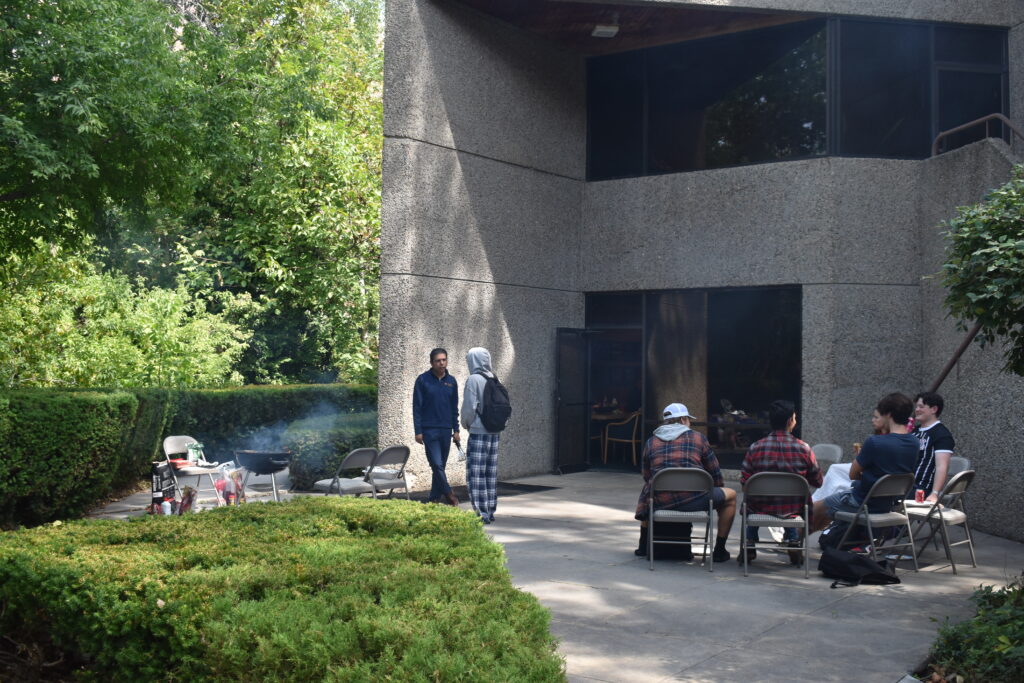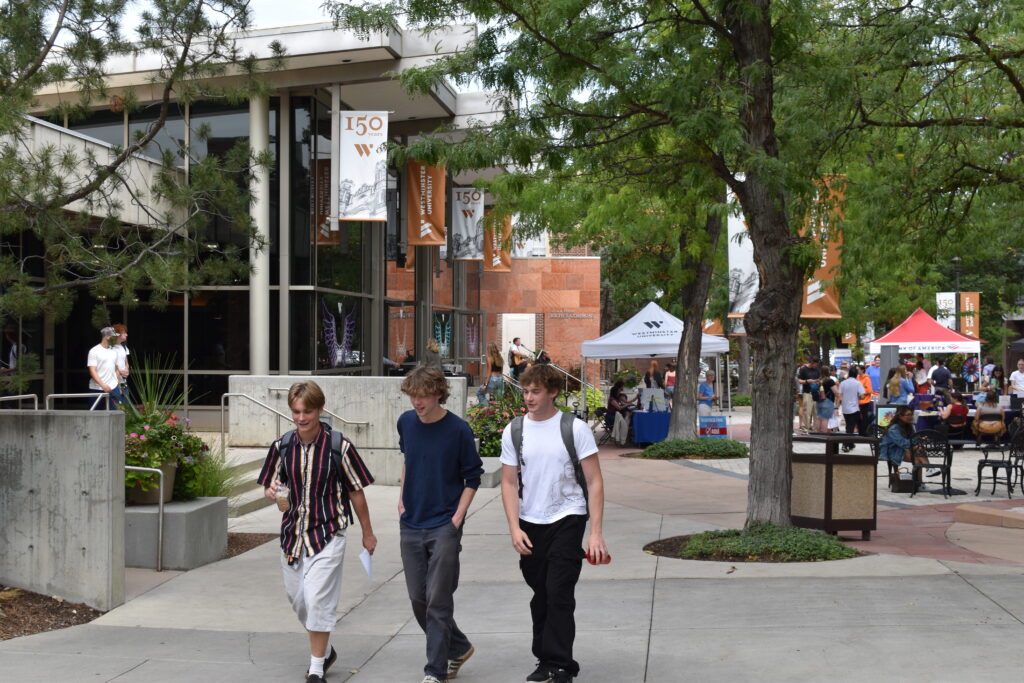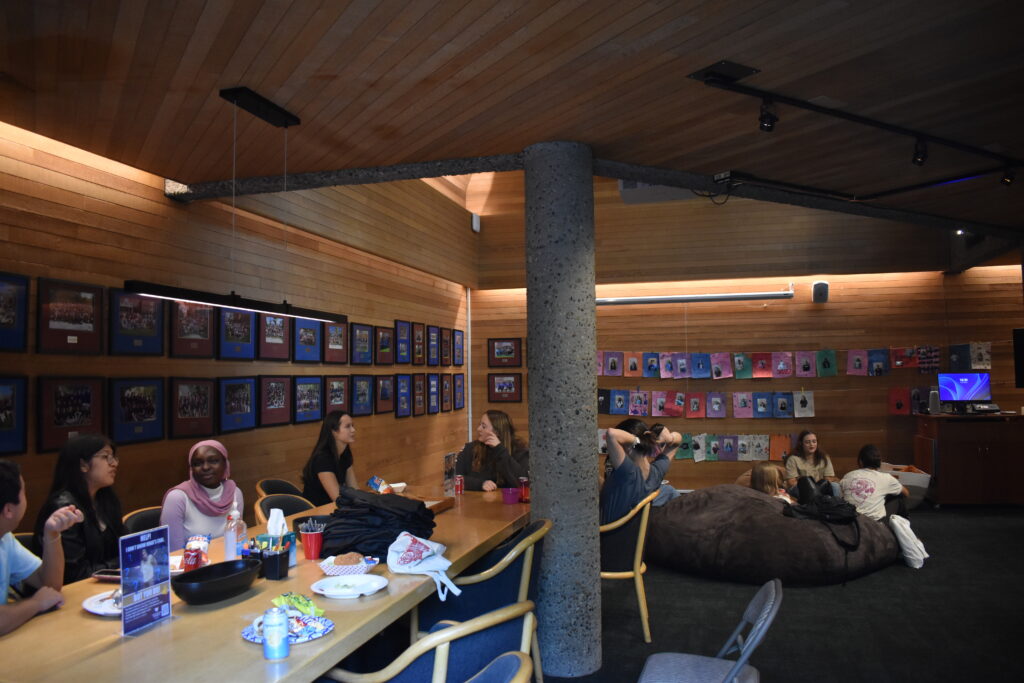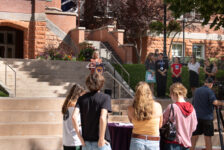More students accepted the offer to join the Honors College this year compared to previous years.
Honors is a small cohort at Westminster, this year it saw a jump in enrollment.
“Usually we sit around 40-42 incoming students and about six to eight lateral entry students with a mixture of internal Westminster transfers into honors and external transfers into Westminster,” said Alicia Cunningham-Bryant, Dean of the Honors College.
In a normal year, the Honors College has around 40-45 students.
This year, the Honors College welcomes 55 first year students and 13 lateral entry students.
“One of the things that is different this year from last year is our yield is really high,” Cunningham-Bryant said. Yield means the number of people that accepted the offer that is given to join the Honors College.
“We had a 49% yield rate,” Cunningham-Bryant said, “We had almost 50% of the students we admitted come. It’s usually 35%, so it was a huge jump in yield.”
It’s not that more students were admitted, the yield rate increased compared to other years, Cunningham-Bryant said.
The Honors College, “offers a distinctive course of study for academically and intellectually prepared students who want to challenge themselves within a supportive environment,” according to Westminster’s website.

Some students shared comments on the Honors program.
“I’m really enjoying it,” said Ethan Genessy, a finance major and first year student that joined the honors college this year. “It’s definitely different than I expected in a good way. I’ve been able to share my thoughts [and] hear other people’s thoughts.”
Another student who joined the Honors College this year echoed the same ideas.
“I really like it, I love the community of it and I love the classes and the professors,” said Amelia Riddle, a pre-med major and first year student.
Cunningham-Bryant said the larger number of incoming students has brought more energy.
“I think there’s so much vibrancy to this class, there’s so many different backgrounds, people are from so many different places,” Cunningham-Bryant said. “I think that really speaks to the exciting, expansive, inclusive dynamic, interdisciplinary of Honors and we love it, we’re so excited.”
With the high yield in the honors program this year, some Learning Communities classes were canceled, but it’s inevitable, according to Christy Seifert, a professor in the communication department.
Seifert teaches both Learning Communities and Honors courses.
Learning Community classes have a wide, “theme and topic areas and are designed to appeal to students with broad interests,” according to Westminster’s website. “Recently, Learning Community classes have focused on holistic wellness, business, psychology and human behavior, and how to detect disinformation.”
Seifert said that Learning Communities don’t have to be WCore, but the majority are. Most Learning Communities are WCore because it is more beneficial for students in order to complete certain requirements faster.

One student said he was excited about the social group and shared his experience being in a Learning Community.
“I like that it gives me a group of people where I’m spending a lot of time with them and I can get to know people right off the bat,” said Milo Thompson Vought, a first year student planning to study neuroscience.
WCore is a program that gives students, “the opportunity to expand your knowledge, investigate and express your interest, and explore new subjects and ideas through unique, engaged, and challenging courses,” according to Westminster’s website.
“Sometimes the learning communities just get canceled, that’s not unusual to happen,” Seifert said. “There were a lot of really interesting learning communities and so it’s a marketplace.”
“I think both learning communities and honors are about recognizing that part of the joy of being a human in the world is having curiosity and asking questions about how stuff works and talking to other people about it and reading books that provide different perspectives for you and awakening that desire to keep learning and I hope that people carry that on after graduation,” Seifert said.

Cunningham-Bryant, the honors dean shared a similar perspective with Seifert, communication professor.
“Being an explorer, branching out, trying new things, try[ing] something brand new, be[ing] willing to fail, fail better next time and feeling safe in failure,” Cunningham-Bryant said.
Both Seifert and Cunningham-Bryant said that trying new things and having curiosity is important in a supportive environment.
Honors and Learning Communities/WCore are two different pathways for students to choose from, but the main goal is for students to succeed.






